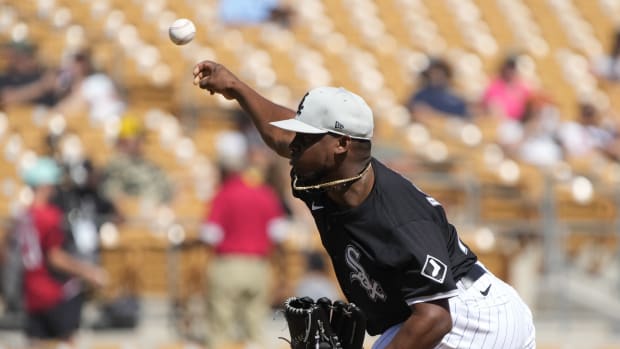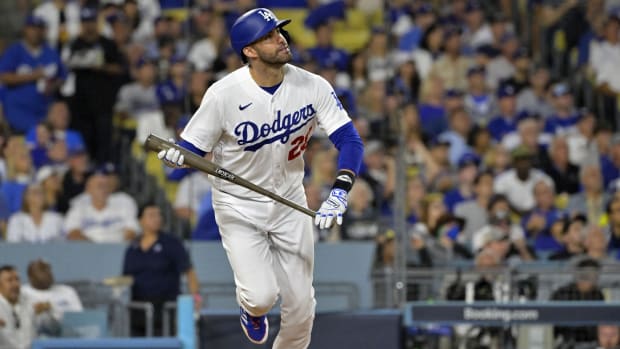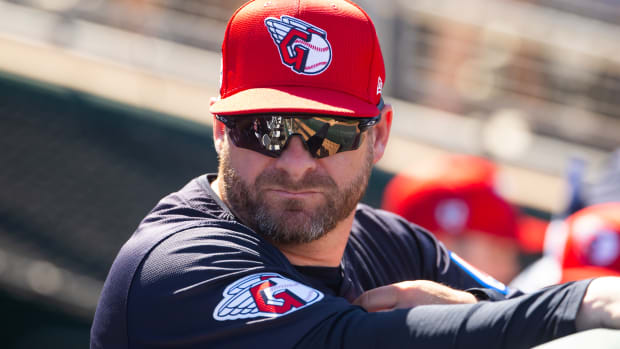Meet Peter Bayer, the Minor Leaguer Working for DoorDash During Baseball's Coronavirus Suspension
On Thursday night, professional baseball player Peter Bayer made $62 in two hours. That’s more than the A’s have paid him since August.
Bayer is one of the 8,000 best baseball players in the world. But his workplace—and his paycheck—are still minor league. And since the coronavirus shut down his sport on Thursday, he isn’t getting paid at all.
So on Thursday, after MLB announced it was suspending spring training and postponing the start of the regular season, Bayer climbed into his white 2013 Mercedes C300 (which he bought with nearly 100,000 miles on it) and clicked on the DoorDash app. Then he began an evening of trudging into crowded restaurants to pick up delivery orders and deposit them with customers.
In attempting to protect players from the coronavirus, the league has made this player more likely to contract the coronavirus. The irony is not lost on Bayer.
“I have to do something in order to make money,” he says. “It’s a risk I have to take.”
Like many minor league baseball players, Bayer earns the bulk of his income from doing things other than playing baseball. He signed with the Rays in 2016 as a senior out of Cal Poly Pomona for $7,500. (As a ninth-rounder, he carried a slot value of closer to $160,000, but college seniors possess almost no leverage. “You can take this or you can not play baseball,” he says. “That’s another broken system.”)
In 2018, Tampa Bay traded him to Oakland for righty Wilmer Font. Last year, with the High A Stockton Ports, Bayer made about $1,500 a month before taxes, from April to August. (Players do not get paid in spring training.) He owed roughly $200 a month in clubhouse fees. In the end, he says, he pocketed about $6,200 for the year, which had to cover housing, food, his car payment and his student loans.
Between starts, he does remote coaching at Driveline, a performance center. The real money comes in the offseason, when he works at an indoor baseball facility near his home outside Denver.
When Bayer arrived at the A’s complex in Mesa, Ariz., in mid-February, he signed up for DoorDash. He does not know where he will begin the season, but he hopes it will be in Double A, where the team will not provide a host family and he will need to rent an apartment, so he wanted to sock away a little extra cash. He considered driving for Uber or Lyft but worried that having strangers in his car would be too much exposure to the coronavirus. So three or four nights a week, on days he wasn’t pitching, he logged into the DoorDash app. He tries to work two to four hours at a stretch. On a good night, with surge pricing, he can see more than $20 an hour; otherwise he settles for closer to $14 an hour.
He feels lucky to be in Phoenix, with its population of some 1.6 million; in Port Charlotte, where the Rays train, he does not think he could fill nearly so many orders. Besides, he points out, people are staying home and ordering delivery these days in attempt to follow the CDC’s recommendations on social distancing.
“It would be really cool if Major League Baseball or Minor League Baseball could take care of us in some way,” he says. “But right now we haven’t heard anything outside of, ‘We’ll pay for your travel to get home and then you’re on your own.’”
He intended to quit DoorDash once the season began. But now he has no idea when that will be. On Friday, the A’s told their minor leaguers to go home until further notice. Bayer will leave at some point this weekend and stay with his parents. He hopes he can return to FAST Baseball Development until spring training resumes, but he’s not even sure the place will be open. His boss thinks they might survive if they restrict training sessions to very small groups.
In the meantime, Bayer tries to stay safe. He keeps hand sanitizer in his car and slathers it on after each interaction. He asks customers to meet him outside rather than walking the orders to their doors. He doesn’t think he has come into contact with anyone infected with the coronavirus. But he can’t be sure.



































